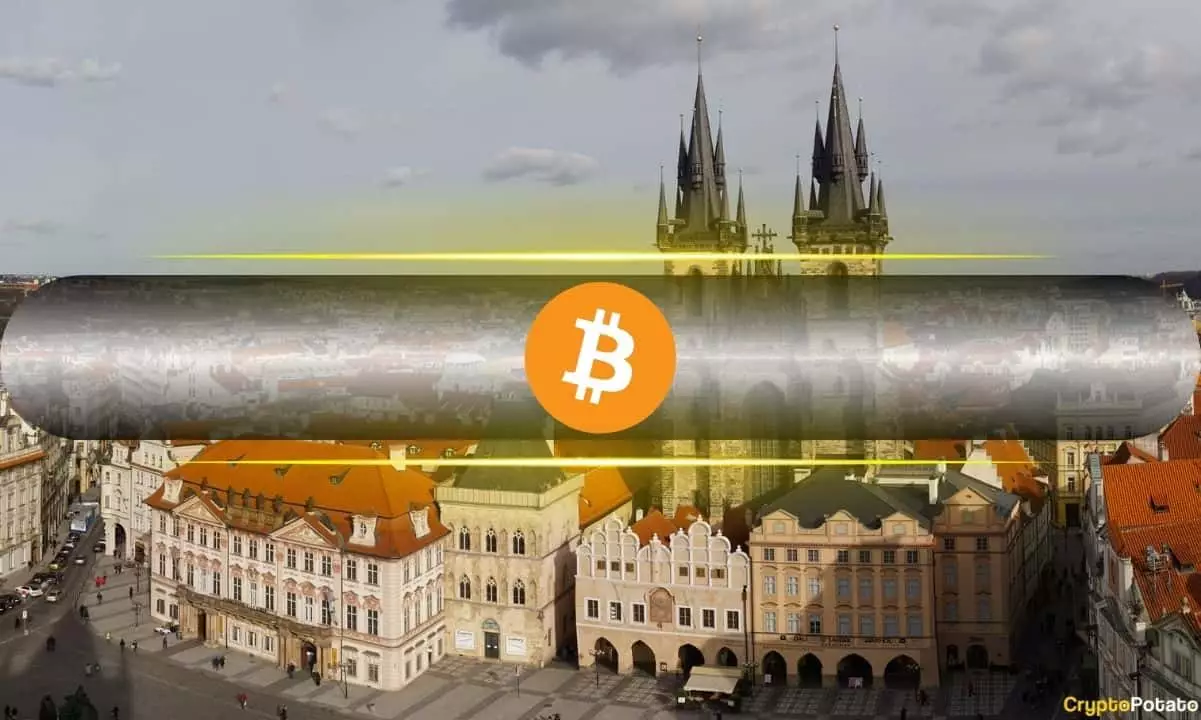In recent years, there has been a noticeable pivot in how governments and central banks are viewing cryptocurrencies, particularly Bitcoin. From the Czech Republic to Switzerland, the conversation around Bitcoin has transformed from skepticism to consideration. The Czech National Bank’s governor, Aleš Michl, has been one of the latest figures to suggest that Bitcoin could serve a role in diversifying the nation’s foreign exchange reserves. This burgeoning interest in Bitcoin as a savings tool marks a significant development in global financial strategies.
Aleš Michl’s remarks during an interview with CNN Prima News reflect a deliberate exploration of Bitcoin’s utility. While he floated the idea of securing “a few Bitcoin” for diversification, he was quick to mitigate expectations by stating that such a move would not represent a considerable investment for the bank. Michl emphasized that any significant decision would need the green light from the bank’s governing board, which illustrates the cautious yet progressive stance that central banks are adopting towards cryptocurrencies. This measured approach underscores the need for further scrutiny and deliberation before any formal integration into national reserves occurs.
The Trump Effect and the U.S. Narrative
The Bitcoin narrative has undergone a remarkable shift in the United States since Donald Trump’s re-election in November 2024. From earlier skepticism, Trump has emerged as an advocate for Bitcoin, suggesting its potential as a strategic asset with economic stabilization qualities. This newfound endorsement has garnered attention, particularly the concept of establishing a U.S. Bitcoin reserve to help counterbalance inflation and the depreciating dollar. There are calls from influential figures, like Senator Cynthia Lummis, emphasizing Bitcoin’s potential to become a cornerstone in national reserves, thus blending traditional finance with innovative assets. Yet, this idea continues to face skepticism from parts of Congress, which raises questions about the future of cryptocurrency integration into traditional financial systems.
Internationally, the sentiment around Bitcoin is gaining momentum. In Switzerland, there are discussions about including Bitcoin in the Swiss National Bank’s reserves alongside traditional assets like gold. Such an endeavor could set a powerful precedent, positioning Switzerland at the forefront of financial innovation. Additionally, proposals in Germany suggest that the adoption of Bitcoin could potentially lessen the European Union’s reliance on the US dollar, promoting economic autonomy. Notably, Hong Kong legislators are also advocating for Bitcoin to be added to financial reserves, highlighting a broader, global trend of engaging with cryptocurrency as a means to enhance economic resilience.
On another front, Russia’s government is taking proactive measures to incorporate Bitcoin into its financial framework. This includes the proposition of a strategic Bitcoin reserve, which aims to create alternatives to U.S.-dominated financial infrastructures and to sidestep Western sanctions. This move represents a significant pivot in how nation-states are considering the use of cryptocurrencies not just as speculative assets but also as vital components of their economic stability and resilience strategies.
The evolving dialogue surrounding Bitcoin, particularly in the context of national reserves, reflects a transformative moment in finance. While cautious, the engagement of central banks in this conversation indicates an acknowledgment of Bitcoin’s potential role in future economic frameworks. As various nations explore these avenues, the global financial landscape may be on the brink of a significant recalibration, with cryptocurrencies eventually becoming entrenched in traditional economic practices. The ramifications of such changes could be profound, ushering in a new era of financial policy and strategy.

